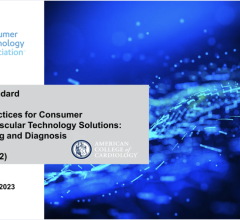
March 15, 2019 – Biotronik announced U.S. Food and Drug Administration (FDA) approval of the Acticor and Rivacor high-voltage cardiac rhythm management (CRM) device families for treatment of patients with cardiac arrhythmias. The six new tachycardia solutions include Rivacor VR-T, Rivacor DR-T, Rivacor HF-T QP, Acticor DX, Acticor CRT-DX Bipolar and Acticor CRT-DX.
The Acticor and Rivacor systems are designed to incorporate more diagnostic and therapeutic capabilities in smaller devices with extended battery longevity. This provides physicians with more comprehensive therapy options when treating cardiac patients with varying disease states and comorbidities. With a smooth, elliptical BIOshape, Acticor and Rivacor devices are the smallest and slimmest 3 Tesla (3T) MR-conditional CRM devices on the market, according to Biotronik. The ultraslim devices have rounded edges that lessen skin pressure and help to lower the risk of skin erosion while increasing patient comfort.1 Extended longevity — nearly 15 years for VR-T, 13.5 years for DR-T, 14 years for DX and nine years for CRT — can lead to fewer device replacements, fewer procedures for patients reducing risks, complications and costs.2 Acticor and Rivacor are backed by extended device warranties.
“When determining the best treatment plan for each patient, we assess individual needs and select a device system that provides optimal therapy programming with critical diagnostic features,” said Larry A. Chinitz, M.D., a cardiac electrophysiologist in New York City. “We are often forced to choose between important features, which could compromise optimal patient care. The approval of Acticor and Rivacor offers choices to avoid this compromise. Intelligent software built into these devices enables us to assess disease states and respond accordingly with flexibility and customization. These devices offer sophisticated programming and automation as well as longer battery life, smaller size, and greater MRI [magnetic resonance imaging] access (3 Tesla). Our hope is that this will be a significant advance in device therapy and empower us to improve patient care while reducing long-term risk.”
The Acticor family offers Biotronik’s DX technology, which provides atrial diagnostics without an atrial lead. DX systems can detect silent atrial fibrillation for stroke prevention, enhance diagnostic accuracy for better clinical decision-making and allow for dual-chamber supraventricular tachycardia (SVT) discrimination to prevent unnecessary shocks. By reducing the number of leads in the device system, DX technology also enables faster procedure times, lowers cost and reduces complications.
With programming options that include 20 LV pacing vectors and cardiac resynchronization therapy (CRT) optimization, Rivacor HF-T QP offers more flexibility than any other CRT device system on the market, according to Biotronik.3 This intelligent CRT AutoAdapt programming automatically adjusts to changes in patient conditions, enabling real-time responsive care while saving valuable time for physicians and hospitals.
Both device families are equipped with Biotronik Home Monitoring, which is associated with a greater than 60 percent reduction in all-cause mortality due to heart failure4 and a 36 percent reduction in hospitalization for worsening heart failure.5 Acticor and Rivacor also feature MRI AutoDetect technology, which automatically recognizes when a patient enters an MRI environment and adjusts therapy for the duration of the scan, simplifying hospital workflows and improving patient safety.
Acticor and Rivacor systems will be available in the U.S. in April 2019.
For more information: www.biotronik.com
References


 April 11, 2024
April 11, 2024 








